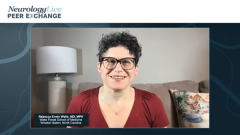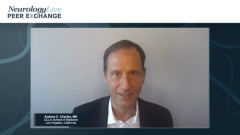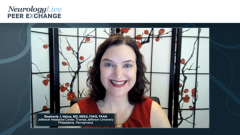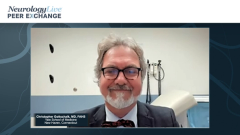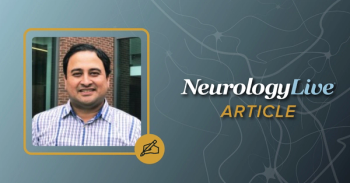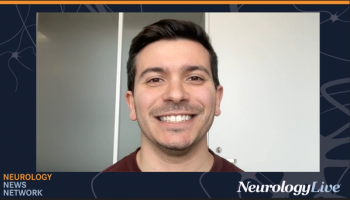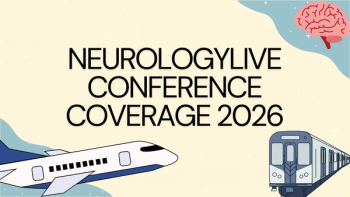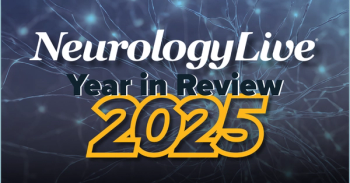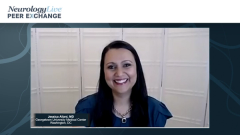
Discussing Preventative Migraine Lifestyle Changes with Patients
Dr Andrew Charles shares how he eases patient anxieties over lifestyle changes for preventive migraine therapy.
Episodes in this series

Jessica Ailani, MD: Andy, you wanted to make a comment?
Andrew C. Charles, MD: I’m going to stir up a little controversy here and bring up a point that there can actually be a double edge to talking to people about lifestyle. That is the notion that somehow it’s their fault when a migraine attack occurs. It’s important to address that issue right up front and say, “Look, these are things that you can do to help, but it’s not because you did something that you’re having a migraine attack.” How many times do people come into your office and say, “Well I had an attack yesterday because I did this.” “No, it’s not because you did this, it’s because you have an inherited disorder. It may have exacerbated it, but it’s not your fault.” Taking the blame out of it is critical.
Then the one controversial thing that I would bring up is, for example, and this gets to Rebecca’s point that we need more research. Anywhere you read any article, any place, any time, people will talk about adequate hydration. Well, what is adequate hydration? What if you just drink when you’re thirsty? Is that appropriate, or do you actually have to carry around the 2 gallon jug of water, in which case you might be making yourself hyponatremic and causing more problems? This is really the point that Rebecca gets at, that these are simple concepts; we simply don’t have data to support many of the recommendations that are just part of the dogma of recommendations for patients with migraine. Even a simple question in a clinical trial like, how much water is best to drink as a healthy approach to migraine? That seems like such a simple study to do, and yet we’ve never done it.
Jessica Ailani, MD: Yes, a very good point. Another very controversial topic is triggers. I think Stefanie wanted to make a comment.
Stefanie J. Nahas, MD, MSEd, FAHS, FAAN: I agree with that 100%. When you’re having these conversations you can run into pitfalls. You have to frame it properly that you’re not blaming them for their behavior, you’re telling them how they can enhance their behavior for the betterment of their health. And that, yes, again, nothing is necessarily “your fault.” The whole exercise thing, yes.
What hydration reminds me of is that we counsel patients to hydrate more, and then they’re complaining if they have to get up in the middle of the night to pee. “Well doctor, you told me I need good sleep and now I’m drinking so much, I’m peeing 3 times a night, what do you want me to do? “It can become very tricky and a delicate balance.
Something that I like to weave into these conversations is that because the research isn’t really there yet, it’s getting there, but we don’t have a lot of firm things we can sink our hooks into. I don’t necessarily tell patients that up front, but what I like to highlight is, maybe it doesn’t matter so much what you do, but just that you’re doing something. Doing something for yourself, paying more attention to yourself, being more mindful of the world and the environment around you and how it affects you. And then you may start to notice some patterns and to learn some strategies for how you can feel better. Ultimately that is going to be highly specific, and highly individualized. I like to use this analogy that migraine is like snowflakes. There are a lot of common characteristics with every case, but no 2 are alike. There are, therefore, no uniform solutions that will fit everybody.
Jessica Ailani, MD: I really like that. I like the snowflake analogy. I often tell my patients to just try to go outside for 10 minutes a day and take a gentle walk. Not so much for the exercise, but more for the mindfulness. Not because it’s going to reduce migraine frequency, but it might improve their capability in dealing with a very disabling disease.
Thank you to our audience for watching this NeurologyLive® Peer Exchange. I hope you’ve enjoyed watching this program as much as we’ve enjoyed spending this time together. If you have enjoyed this content, please subscribe to our e-newsletters to receive upcoming Peer Exchanges and other great content right in your inbox.
Transcript edited for clarity.
Newsletter
Keep your finger on the pulse of neurology—subscribe to NeurologyLive for expert interviews, new data, and breakthrough treatment updates.

